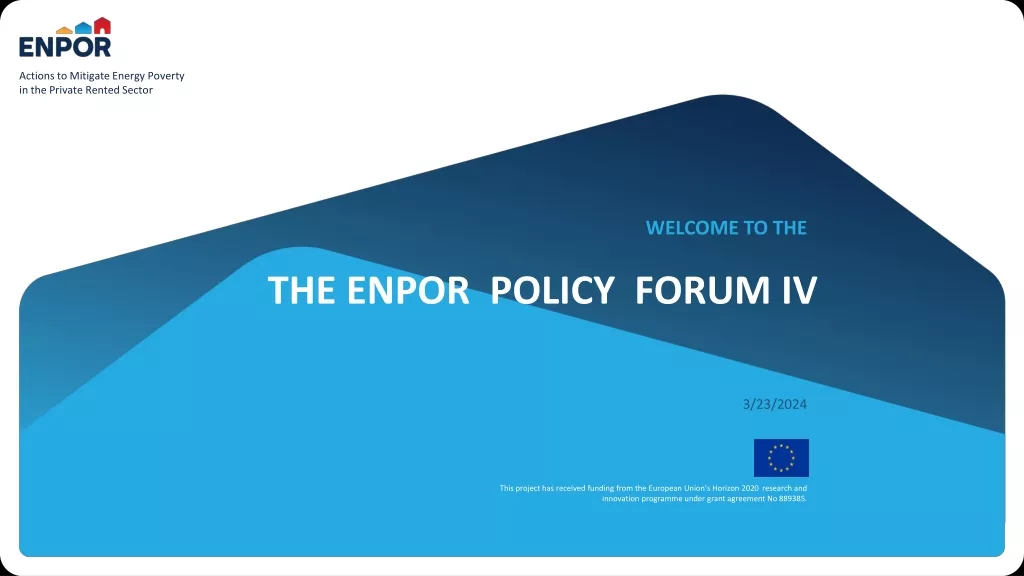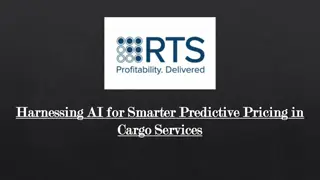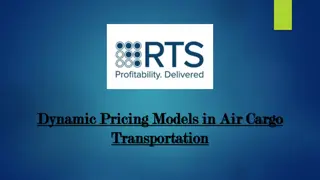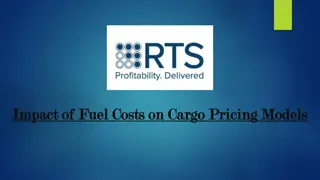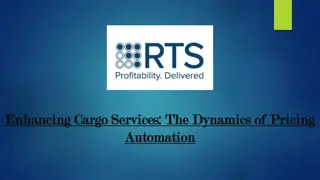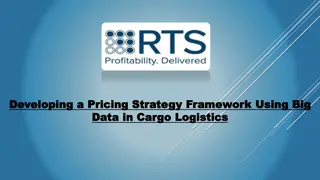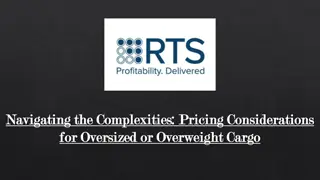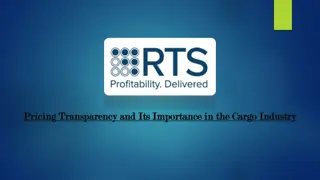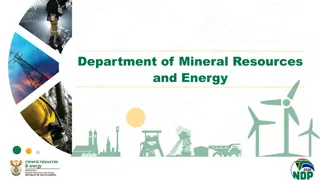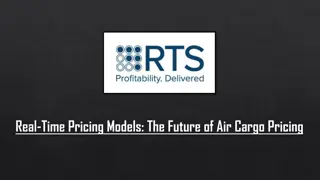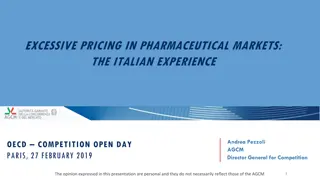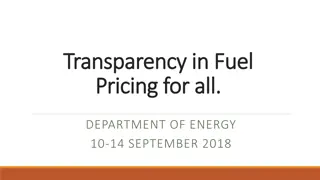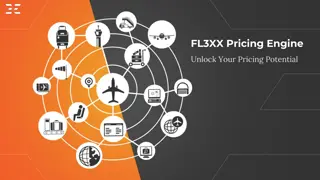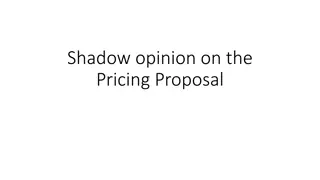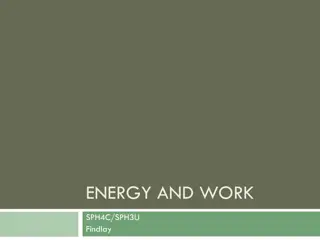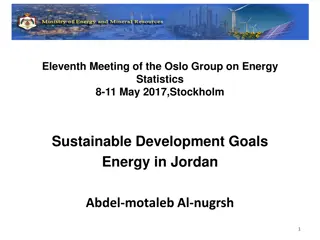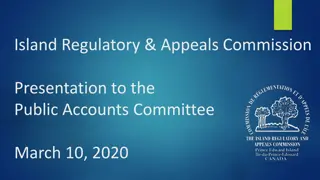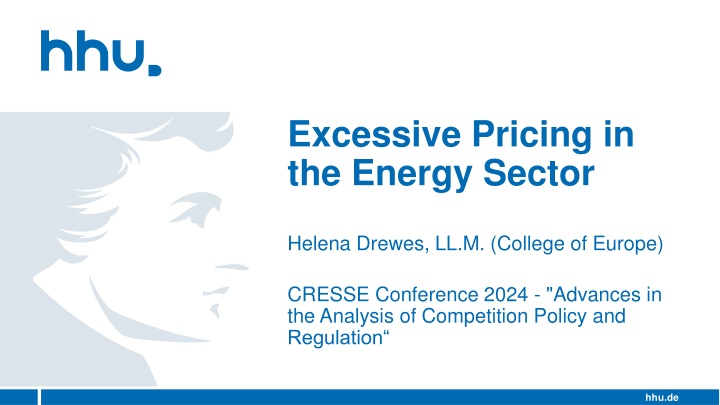
Excessive Pricing in the Energy Sector: Tackling Challenges
Examine the application of Article 102(a) TFEU to address excessive pricing in the energy sector. Explore the legitimacy, conditions, and arguments for intervention. Analyze the United Brands jurisprudence and various methods for pricing analysis to combat unfair practices. Delve into the practical and conceptual challenges, market conditions, and criteria for regulatory intervention.
Download Presentation

Please find below an Image/Link to download the presentation.
The content on the website is provided AS IS for your information and personal use only. It may not be sold, licensed, or shared on other websites without obtaining consent from the author. If you encounter any issues during the download, it is possible that the publisher has removed the file from their server.
You are allowed to download the files provided on this website for personal or commercial use, subject to the condition that they are used lawfully. All files are the property of their respective owners.
The content on the website is provided AS IS for your information and personal use only. It may not be sold, licensed, or shared on other websites without obtaining consent from the author.
E N D
Presentation Transcript
Excessive Pricing in the Energy Sector Helena Drewes, LL.M. (College of Europe) CRESSE Conference 2024 - "Advances in the Analysis of Competition Policy and Regulation hhu.de
Is Article 102(a) TFEU suitable and necessary to tackle excessive pricing in the energy sector? hhu.de
Is Article 102(a) TFEU suitable and necessary to tackle excessive pricing in the energy sector? Legitimate Suitable I. Is excessive pricing a legitimate category of abuse? Necessary II. Can excessive pricing under Art. 102(a) TFEU be applied in the gas and electricity markets? III. Should excessive pricing under Art. 102(a) TFEU be applied in the gas and electricity markets? hhu.de Drewes, Excessive Pricing in the Energy Sector 3
I. Legitimate? Excessive pricing in the system of Art. 102 TFEU Art. 102(a) : directly or indirectly imposing unfair purchase or selling prices Jurisprudence: United Brands (1978): two-tier approach 1) costs-price difference excessive 2) price unfair in itself / when compared to competing products Different Methods: price-cost margin analysis, price comparison between markets or competitors, geographical comparison, comparison over time hhu.de Drewes, Excessive Pricing in the Energy Sector 4
I. Legitimate? Arguments against intervention Conceptual challenges Practical challenges temporary and self-correcting symptom of underlying structural problems and prices as signals constitutional implications lack of justiciable and economically convincing criteria or benchmarks particularly high risk of Type I and II errors other means: civil law, tax law, regulation Drewes, Excessive Pricing in the Energy Sector hhu.de 5
I. Legitimate? Conditions for the application 1) price = significantly and persistently above benchmark price 2) specific conditions of the market and the dominant undertaking 1) significant or entrenched market power 2) significant or high and non-transitory barriers to entry 3) no negative impact on research and innovation + special rights / exclusionary anticompetitive practices? + lacking jurisdiction or regulatory failure ( gap cases )? + indispensable goods and facing inelastic demand curve? Drewes, Excessive Pricing in the Energy Sector hhu.de 6
II. Suitable? Competition law enforcement in the energy sector central, complementary role commitment procedures catalyst for enforcement: sector inquiry in 2007 Relationship between regulation and competition law 1) similar basic objective, but conceptually different 2) mutual complementarity and consideration 3) scope of action (Deutsche Telekom (2010)) Drewes, Excessive Pricing in the Energy Sector hhu.de 7
II. Suitable? Markets Markets Markets Price-related regulation Price-related regulation Price-related regulation Scope Scope Scope Relevant behaviour + cases Relevant behaviour + cases Relevant behaviour + cases Generation and Generation and wholesale wholesale no specific price-related regulation, but: REMIT Regulation (2011) (+) directly: e.g. Gazprom indirectly: capacity withholding/hoarding, abusive strategic bidding and scarcity pricing national cases, e.g. German Electricity Wholesale and Balancing Market (2008) Access to Access to networks networks partly (strong) differentiated specifications by tertiary law, e.g. Recommendation 2005/698/EC varying according to the type of network charge national cases, e.g Stadtwerke Mainz (2005) Retail supply supply Retail market-based supply prices (Art. 5(1) Dir. (EU) 2019/944) but: price regulation by MS, Art. 5(2)- (10) varying according to the system of price regulation national cases, e.g. RWE Net AG (2003) Drewes, Excessive Pricing in the Energy Sector hhu.de 8
III. Necessary? Objection 1: exclusionary practices Objection 2: regulation Drewes, Excessive Pricing in the Energy Sector hhu.de 9
IV. Conclusions I. Is excessive pricing a legitimate category of abuse? Yes, but due to conceptual and practical problems specific strict conditions II. Can excessive pricing under Art. 102(a) TFEU be applied in the gas and electricity markets? Yes, but depending on the pervasiveness of the specific market, the form and degree of price regulation and the scope of action for undertakings III. Should excessive pricing under Art. 102(a) TFEU be applied in the gas and electricity markets? Yes, despite the objections of a priority of exclusionary abuse, objection and regulation (at least) as a stopgap case hhu.de Drewes, Excessive Pricing in the Energy Sector 10
Helena Drewes, LL.M. (College of Europe) Heinrich-Heine-Universit t D sseldorf Helena.drewes@hhu.de hhu.de

